Authors & editors
ANU Press has collaborated with a diverse range of authors and editors across a wide variety of academic disciplines. Browse the ANU Press collection by author or editor.
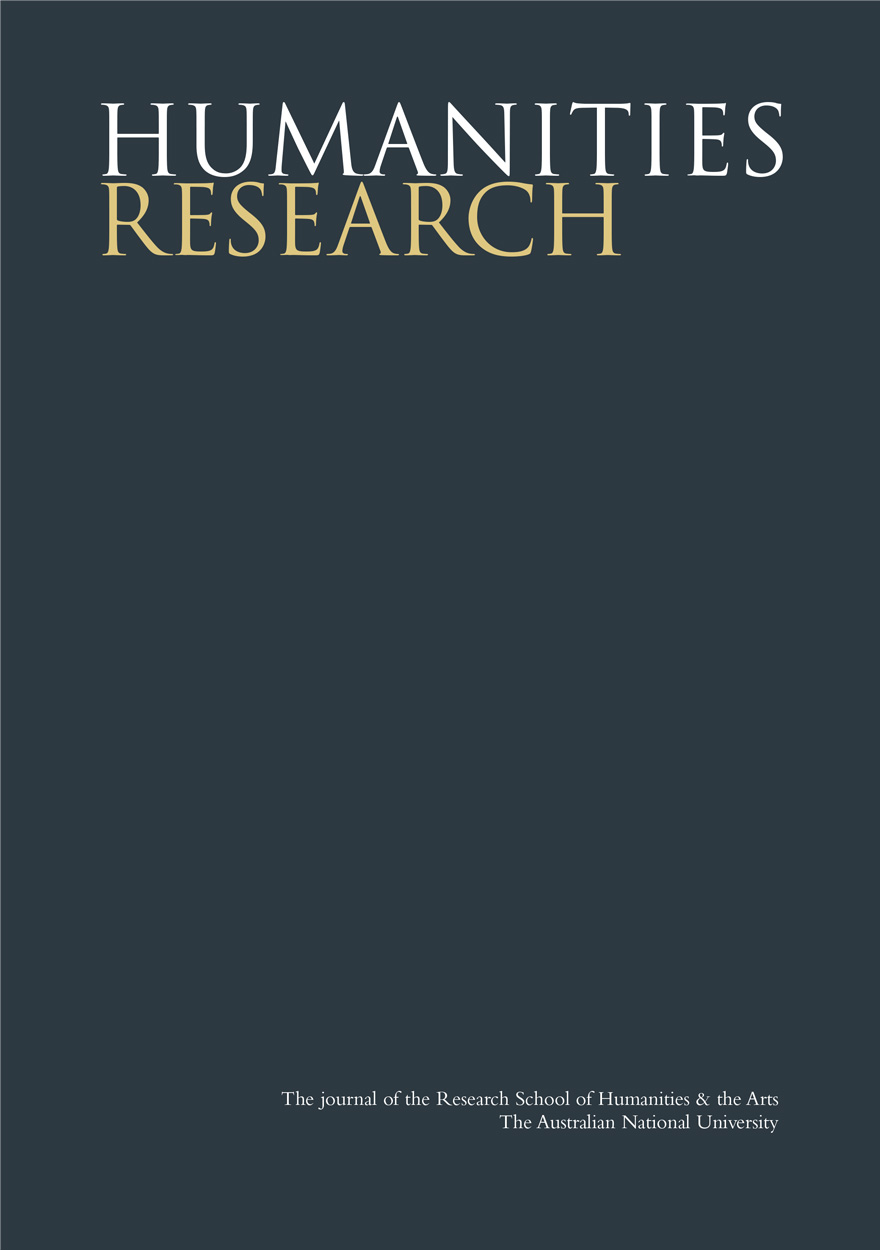
Humanities Research: No. 2. 1999 »
Publication date: July 2009
Humanities Research is an internationally peer-reviewed journal published by the Research School of Humanities at The Australian National University. The Research School of Humanities came into existence in January 2007 and consists of the Humanities Research Centre, Centre for Cross-Cultural Research, National Europe Centre and Australian National Dictionary Centre. Launched in 1997, issues are thematic with guest editors and address important and timely topics across all branches of the humanities.
Download for free
Not available for purchase
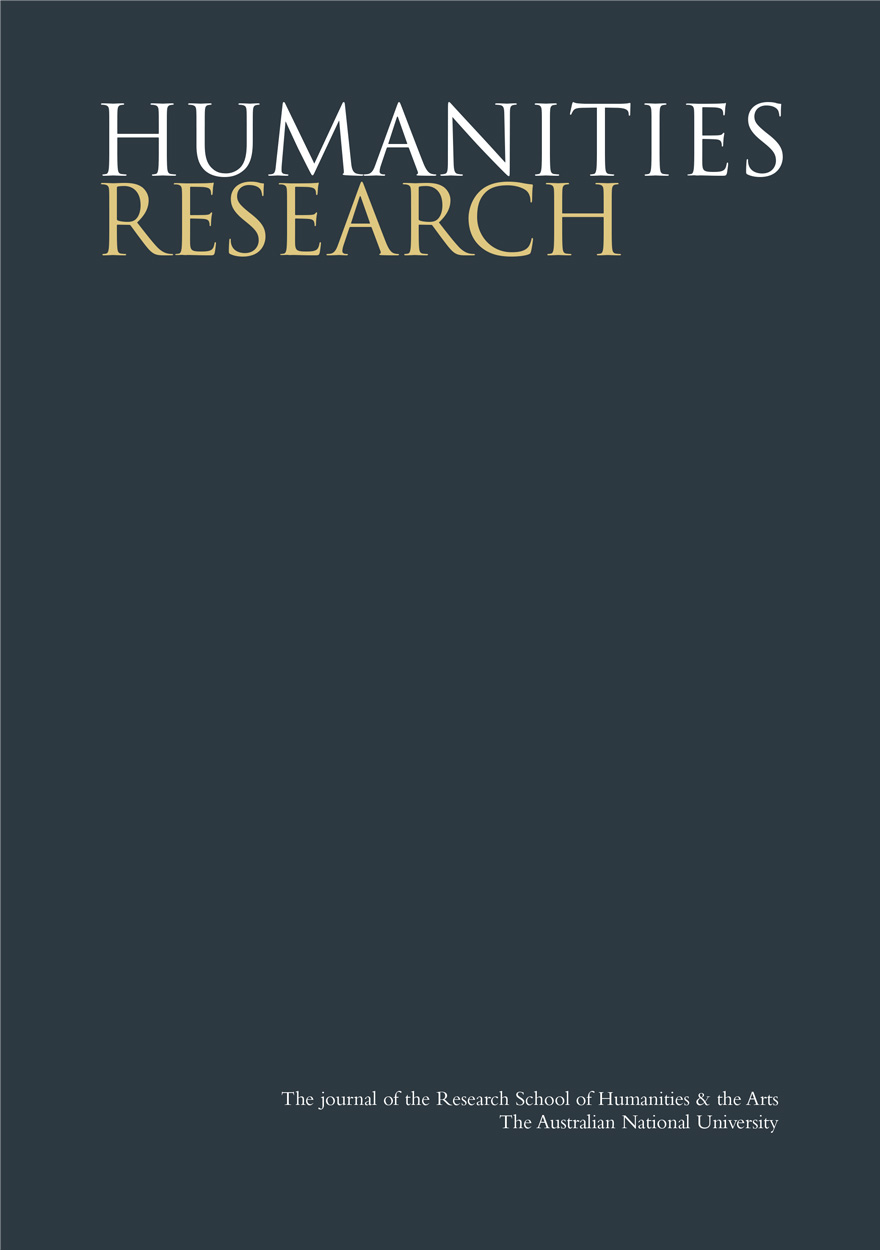
Humanities Research: No. 1. 1999 »
Publication date: July 2009
Humanities Research is an internationally peer-reviewed journal published by the Research School of Humanities at The Australian National University. The Research School of Humanities came into existence in January 2007 and consists of the Humanities Research Centre, Centre for Cross-Cultural Research, National Europe Centre and Australian National Dictionary Centre. Launched in 1997, issues are thematic with guest editors and address important and timely topics across all branches of the humanities.
Download for free
Not available for purchase
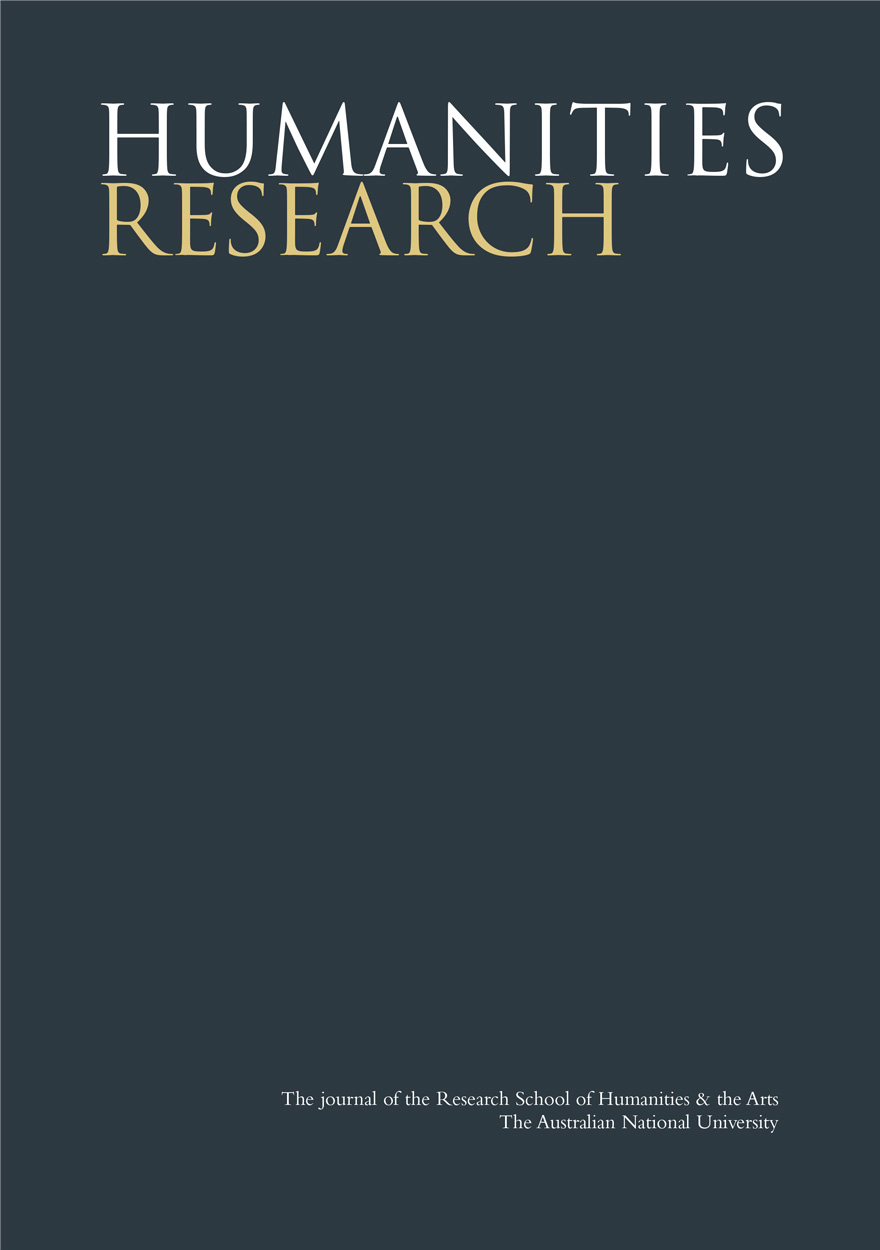
Humanities Research: No. 3. 1998 »
Publication date: July 2009
Humanities Research is an internationally peer-reviewed journal published by the Research School of Humanities at The Australian National University. The Research School of Humanities came into existence in January 2007 and consists of the Humanities Research Centre, Centre for Cross-Cultural Research, National Europe Centre and Australian National Dictionary Centre. Launched in 1997, issues are thematic with guest editors and address important and timely topics across all branches of the humanities.
Download for free
Not available for purchase
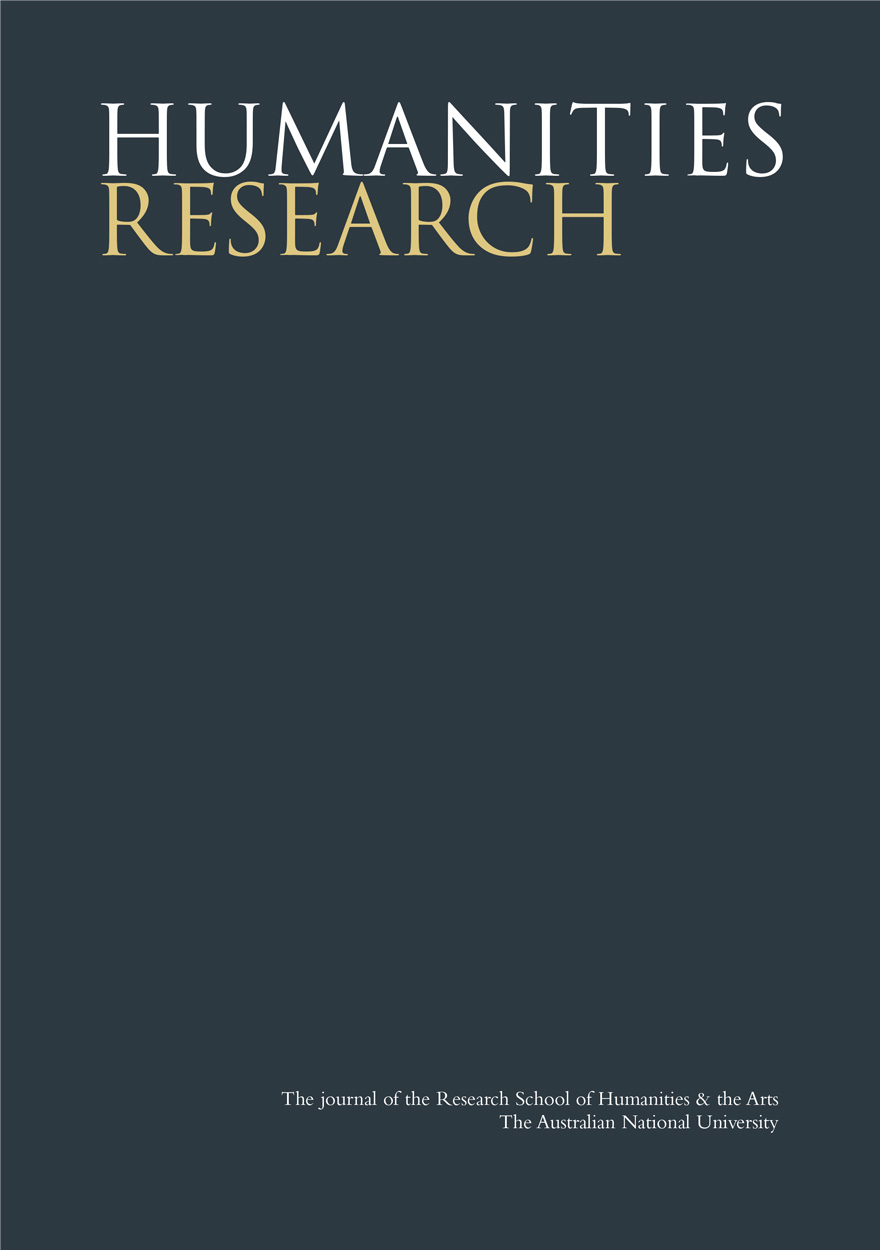
Humanities Research: No. 2. 1998 »
Publication date: July 2009
Humanities Research is an internationally peer-reviewed journal published by the Research School of Humanities at The Australian National University. The Research School of Humanities came into existence in January 2007 and consists of the Humanities Research Centre, Centre for Cross-Cultural Research, National Europe Centre and Australian National Dictionary Centre. Launched in 1997, issues are thematic with guest editors and address important and timely topics across all branches of the humanities.
Download for free
Not available for purchase
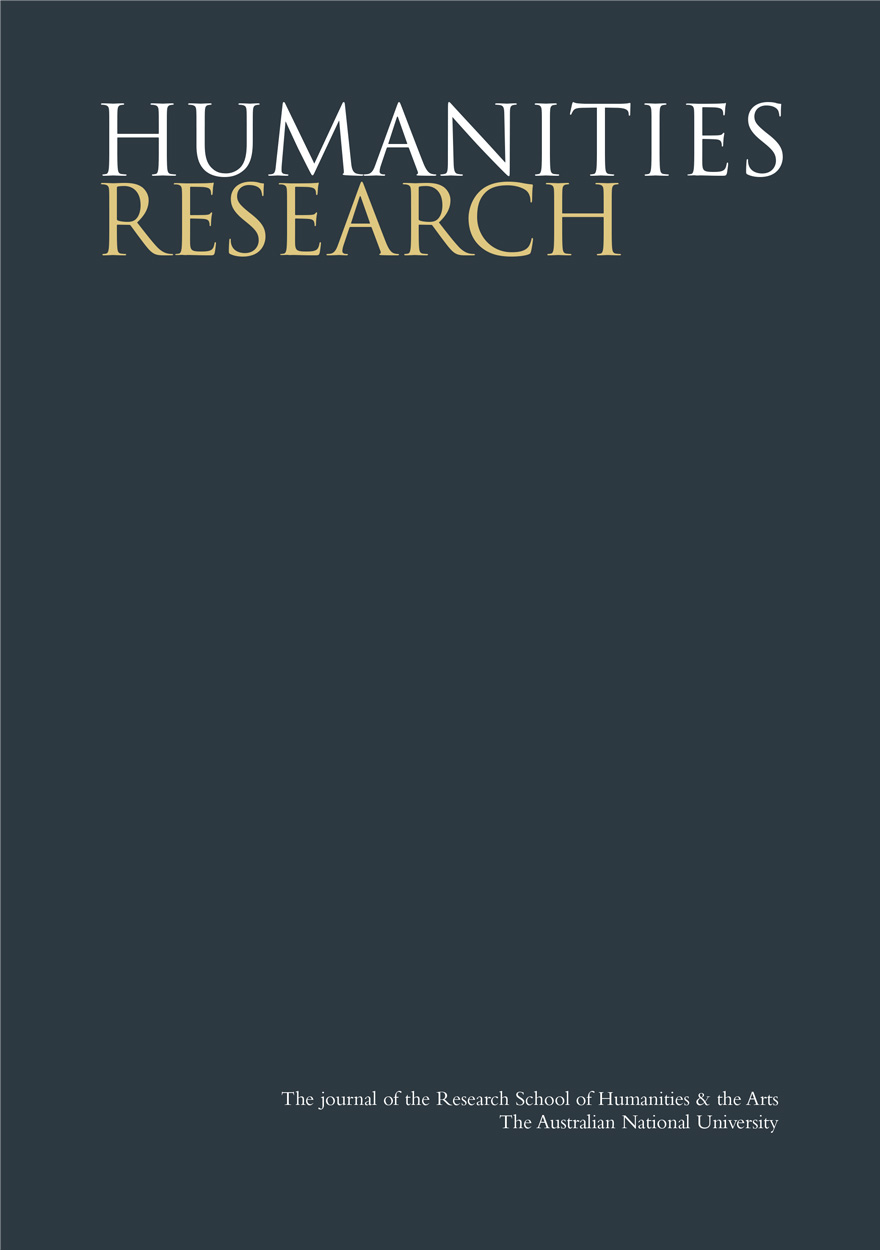
Humanities Research: No. 1. 1998 »
Publication date: July 2009
Humanities Research is an internationally peer-reviewed journal published by the Research School of Humanities at The Australian National University. The Research School of Humanities came into existence in January 2007 and consists of the Humanities Research Centre, Centre for Cross-Cultural Research, National Europe Centre and Australian National Dictionary Centre. Launched in 1997, issues are thematic with guest editors and address important and timely topics across all branches of the humanities.
Download for free
Not available for purchase
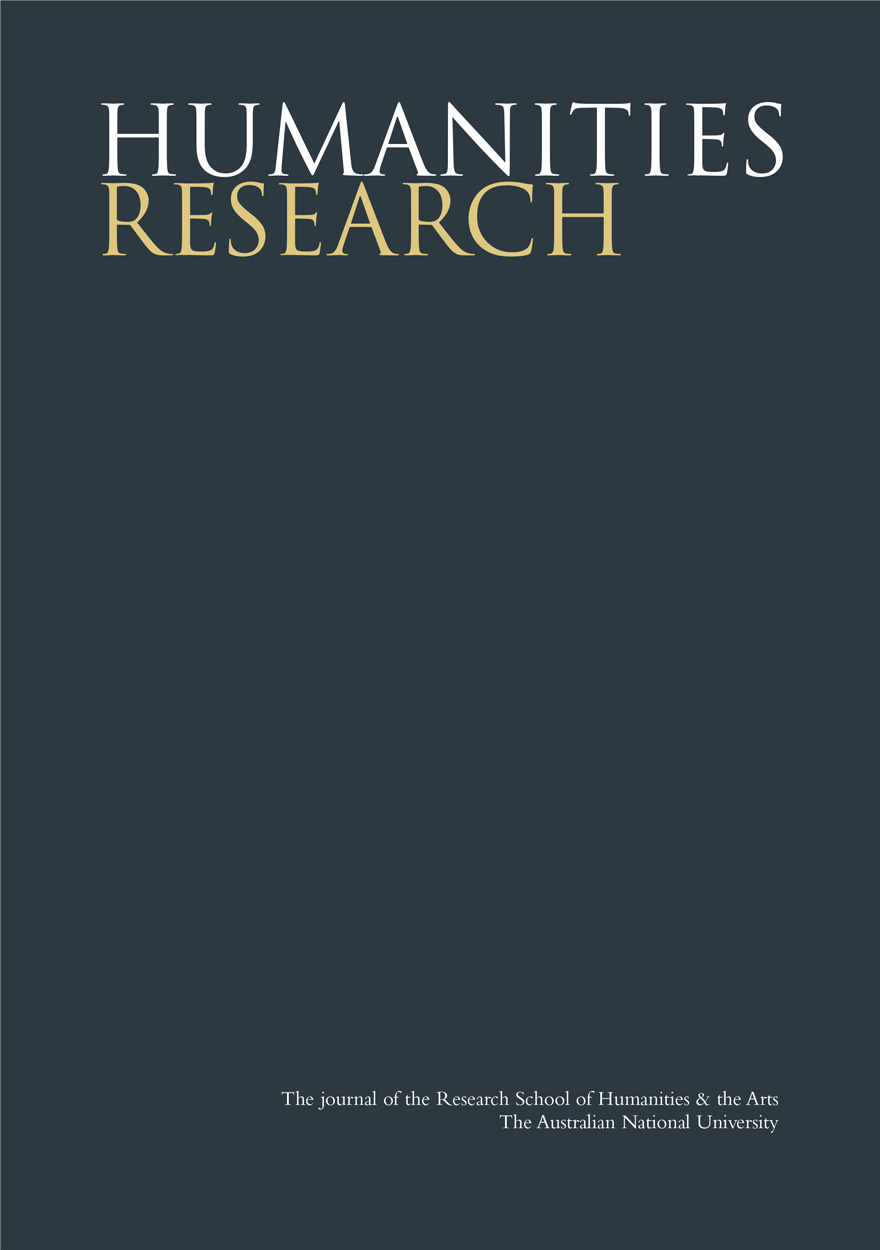
Humanities Research: Winter 1997 »
Publication date: July 2009
Humanities Research is an internationally peer-reviewed journal published by the Research School of Humanities at The Australian National University. The Research School of Humanities came into existence in January 2007 and consists of the Humanities Research Centre, Centre for Cross-Cultural Research, National Europe Centre and Australian National Dictionary Centre. Launched in 1997, issues are thematic with guest editors and address important and timely topics across all branches of the humanities.
Download for free
Not available for purchase

An Atlas of the Global Water Cycle »
Based on the IPCC AR4 Climate Models
Authored by: Wee Ho Lim, Michael L. Roderick
Publication date: July 2009
What do climate models predict for the rainfall where you live? What about evaporation or runoff? Should your local community consider constructing new dams or do the existing water storages appear adequate? What about the availability of water for irrigation farming? Do the predictions differ between different climate models or do all the models basically predict the same changes in water availability where you live?
These are all simple questions but it is surprisingly hard for an individual, whether they be a farmer, water resources engineer, teacher or interested citizen, to answer them. As researchers active in the field we could not answer the questions either. In fact, we had never seen a compilation of the rainfall, evaporation and runoff predictions made by all the different climate models.
The Atlas contains maps and tables that document model predictions contributed by international climate modelling groups to the 2007 4th Assessment Report of the Intergovernmental Panel on Climate Change. The predictions are made available here via the wonders of the internet and ongoing cooperation by the international climate modelling community who routinely archive their results.
The maps and tables in the Atlas document rainfall, evaporation and runoff estimates for the 20th century along with predictions of the same quantities at the end of the 21st century. Whatever your interest, we hope you find the Atlas as helpful as we do.

The Dilemmas of Engagement »
The Role of Consultation in Governance
Authored by: Jenny Stewart
Publication date: June 2009
‘Consultation’ has become something of a mantra in contemporary governance. Governments well understand that policy occurs in a highly contestable environment in which there are multiple, and often competing interests. They well recognise the political imperative to ‘engage’ stakeholders in order to manage potential conflict and, hopefully, obtain acceptance for their policies and programs. As a result, politicians and public officials frequently emphasise the need for consultation as an essential element of the deliberative processes underpinning the development of policy or the implementation of programs and services. But, moving beyond the rhetoric of consultation and engagement, how well is it done? In this monograph, Professor Jenny Stewart maps out the principal approaches used by governments to consult with and engage affected communities of interest. Stewart critically assesses the available literature and draws directly upon the experiences of political actors, bureaucrats and community sector organisations in order to identify the ‘good, bad, and the ugly’ of engagement. Through a judicious use of selected case studies, Stewart distils the essential dilemmas and contradictions inherent in many consultation strategies and highlights their relative strengths and weaknesses. This monograph is a probing and dispassionate analysis of the rationales, methodologies and outcomes of consultation and engagement. It is not intended to be a ‘cookbook’ or a ‘how to’ manual for those consulting or the consulted. Nevertheless, there is much here for the policy practitioner, the researcher and members of those ‘communities of interest’ who might, one day, find themselves the target of engagement.

The Disaster of the Third Princess »
Essays on The Tale of Genji
Authored by: Royall Tyler
Publication date: June 2009
These seven essays by the most recent English translator of The Tale of Genji emphasize three major interpretive issues. What is the place of the hero (Hikaru Genji) in the work? What story gives the narrative underlying continuity and form? And how does the closing section of the tale (especially the ten “Uji chapters”) relate to what precedes it? Written over a period of nine years, the essays suggest fresh, thought-provoking perspectives on Japan’s greatest literary classic.

The Role of Departmental Secretaries »
Personal reflections on the breadth of responsibilities today
Authored by: Andrew Podger
Publication date: June 2009
Andrew Podger’s monograph, The Role of Departmental Secretaries, Personal reflections on the breadth of responsibilities today, is an important contribution to the broader public policy discourse in Australia. Andrew has been, at times, an unflinching commentator on issues of bureaucratic performance, accountability and responsiveness to government. Andrew’s reflections are drawn from his own experiences within the inner circle of Australian policy-making. In this monograph, he presents a highly nuanced portrait of the role of Commonwealth departmental secretaries. Although a ‘player’ himself at key moments in recent policy history, Andrew is a dispassionate and thoughtful observer of events. This is not merely a memoir: this work is rich in analysis and Andrew offers a number of ‘lessons learned’ to be heeded (or not) by the present and future generations of policy practitioners.

Agenda - A Journal of Policy Analysis and Reform: Volume 16, Number 2, 2009 »
Edited by: William Coleman
Publication date: June 2009
Agenda is a refereed, ECONLIT-indexed and RePEc-listed journal of the College of Business and Economics, The Australian National University. Launched in 1994, Agenda provides a forum for debate on public policy, mainly (but not exclusively) in Australia and New Zealand. It deals largely with economic issues but gives space to social and legal policy and also to the moral and philosophical foundations and implications of policy.
Subscribe to the Agenda Alerting service if you wish to be advised on forthcoming or new issues.
Download for free
Not available for purchase

Critical Reflections on Australian Public Policy »
Selected Essays
Edited by: John Wanna
Publication date: May 2009
This collection of ‘critical reflections’ on Australian public policy offers a valuable contribution to public discussion of important political and policy issues facing our nation and society. These essays are important not only because of the reputation and position of the various contributors, but because they are incredibly ‘content rich’ and brimming with new ideas.

Precedence »
Social Differentiation in the Austronesian World
Edited by: Michael P. Vischer
Publication date: May 2009
This collection of papers is the sixth volume in the Comparative Austronesian series. The papers that comprise this volume examine the concept of precedence as a form of local discourse and as a mechanism for ordering status, at different levels, within specific Austronesian-speaking societies. This is the first volume of its kind to focus entirely on precedence and to provide an explication of its social uses and the way in which it is contested. Each paper is ethnographically-focused and offers its own distinctive approach to the examination of precedence. The papers, however, relate closely to one another and are thus able to proffer a variety of comparative reflections.
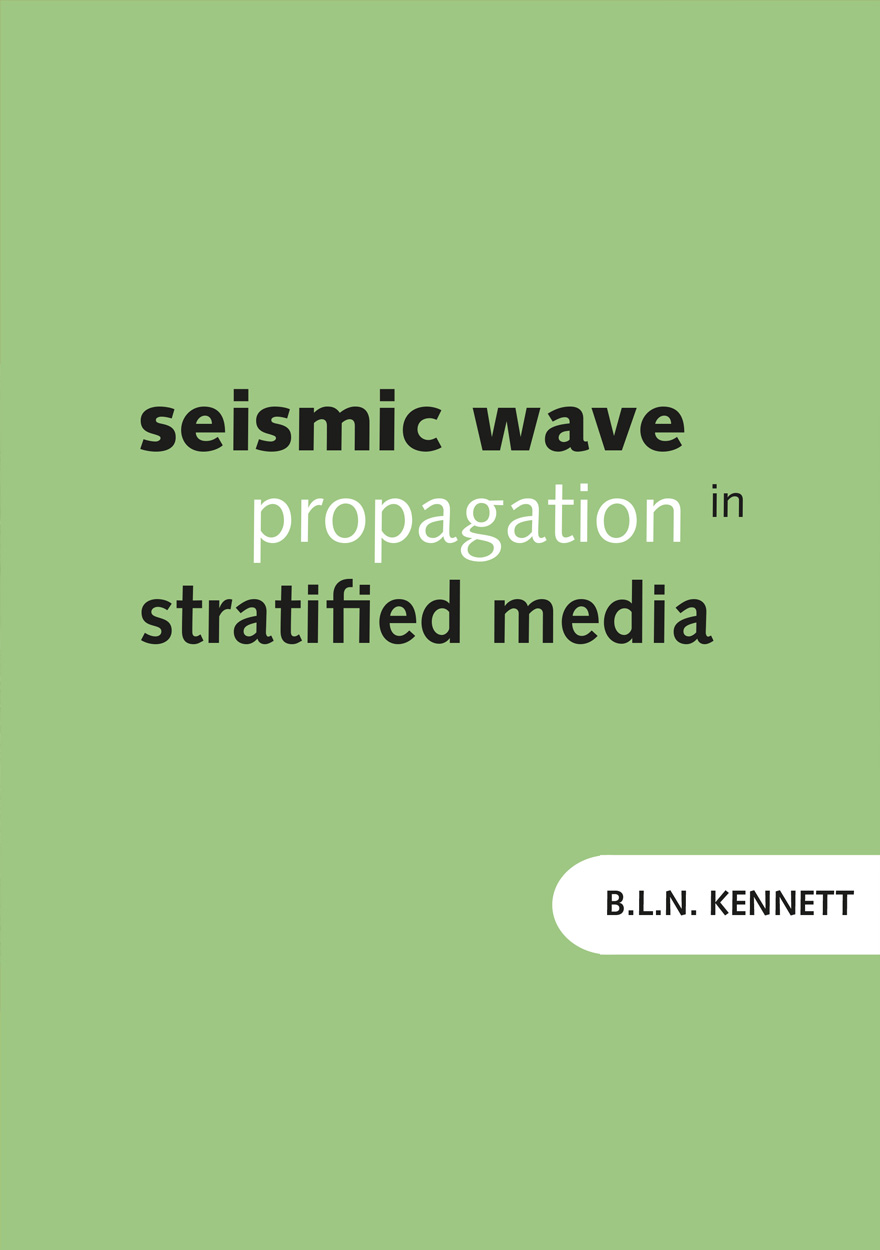
Seismic Wave Propagation in Stratified Media »
Authored by: Brian Kennett
Publication date: May 2009
Seismic Wave Propagation in Stratified Media presents a systematic treatment of the interaction of seismic waves with Earth structure. The theoretical development is physically based and is closely tied to the nature of the seismograms observed across a wide range of distance scales – from a few kilometres as in shallow reflection work for geophysical prospecting, to many thousands of kilometres for major earthquakes. A unified framework is presented for all classes of seismic phenomena, for both body waves and surface waves.
Since its first publication in 1983 this book has been an important resource for understanding the way in which seismic waves can be understood in terms of reflection and transmission properties of Earth models, and how complete theoretical seismograms can be calculated. The methods allow the development of specific approximations that allow concentration on different seismic arrivals and hence provide a direct tie to seismic observations.

Australian Humanities Review: Issue 46, 2009 »
Edited by: Monique Rooney, Russell Smith
Publication date: May 2009
Australian Humanities Review is a peer-reviewed interdisciplinary journal featuring articles, essays and reviews focusing on a wide array of topics related to literature, culture, history and politics.
Download for free
Not available for purchase

Tracking Rural Change »
Community, Policy and Technology in Australia, New Zealand and Europe
Edited by: Francesca Merlan, David Raftery
Publication date: April 2009
A key, intensifying change affecting rural areas in the last few decades has been a decline in the proportion of national populations whose principal livelihood is farming. The corresponding re-distribution of population has typically resulted in a net population loss to rural areas, and diversification of rural activity. The corporatization and technological modification of food production has prompted new policy challenges, and has bound rural and urban populations together in new relationships articulated in moral discourses of custodianship, food safety, and sustainability. Contributors to this volume came together in the attempt to stimulate collective insight into trends of rural change in Australia, New Zealand and Europe. The first two countries have been characterised by avowedly `neoliberal’ rural policy – with considerable departures from it in practice; Europe, on the other hand, by a mix of policy measures which attempt to integrate land management and sustainability, diversification and maintenance of a competitive farming sector within an overarching policy framework more overtly, though only partially, oriented towards sustaining rural society.
Aiming to build on research relating to the character of rural transitions, this volume offers substantive and critical contributions to the understanding of the sources of unpredictability, instability, and continuity, that underpin rural transition. The papers explore changes and continuities in policy, the governance of rural spaces, technological developments relating to rural areas and populations, and social forms of subjectivation and participation in increasingly diverse rural settings.

Agenda - A Journal of Policy Analysis and Reform: Volume 16, Number 1, 2009 »
Edited by: William Coleman
Publication date: April 2009
Agenda is a refereed, ECONLIT-indexed and RePEc-listed journal of the College of Business and Economics, The Australian National University. Launched in 1994, Agenda provides a forum for debate on public policy, mainly (but not exclusively) in Australia and New Zealand. It deals largely with economic issues but gives space to social and legal policy and also to the moral and philosophical foundations and implications of policy.
Subscribe to the Agenda Alerting service if you wish to be advised on forthcoming or new issues.
Download for free
Not available for purchase

The 2006 Military Takeover in Fiji »
A Coup to End All Coups?
Publication date: April 2009
This book explores the factors behind – and the implications of – the 2006 coup. It brings together contributions from leading scholars, local personalities, civil society activists, union leaders, journalists, lawyers, soldiers and politicians – including deposed Prime Ministers Laisenia Qarase and Mahendra Chaudhry. The 2006 Military Takeover in Fiji: A Coup to End All Coups? is essential reading for those with an interest in the contemporary history of Fiji, politics in deeply divided societies, or in military intervention in civilian politics.
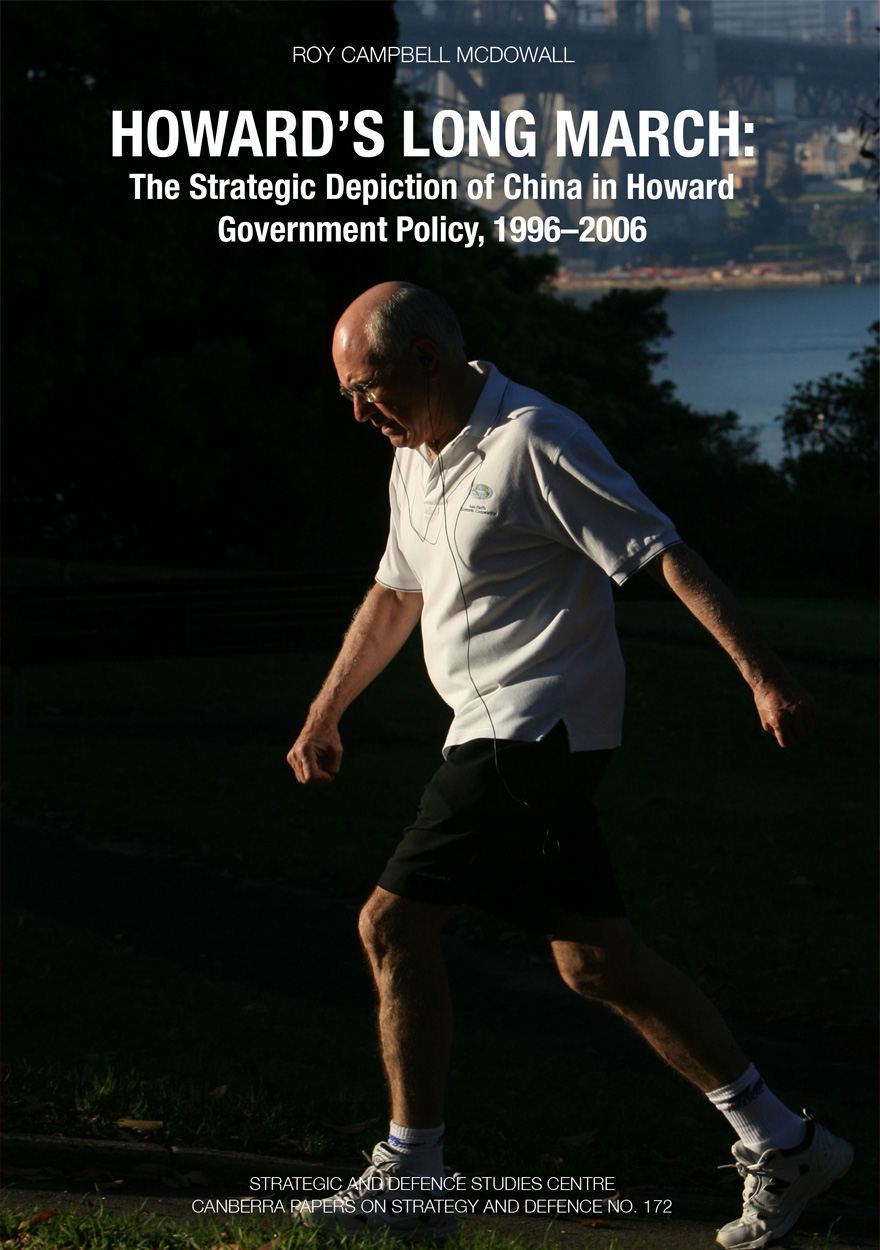
Howard's Long March »
The Strategic Depiction of China in Howard Government Policy, 1996–2006
Authored by: Roy Campbell McDowall
Publication date: March 2009
Australia’s strategic depiction of China has assumed increased importance as it attempts to harmonise economic interests (focusing on China) with security interests (primarily the United States). In this period of strategic transition, how Australia incorporates the rise of China into its existing security commitment under ANZUS has become a delicate issue. This investigation follows the intriguing evolution of the Howard Government’s depictions of China, and reveals a complex and calculated strategy that successfully transformed a potentially volatile conflict of interests into a functional foreign policy.

The Land is a Map »
Placenames of Indigenous Origin in Australia
Edited by: Luise Hercus, Flavia Hodges, Jane Simpson
Publication date: March 2009
The entire Australian continent was once covered with networks of Indigenous placenames. These names often evoke important information about features of the environment and their place in Indigenous systems of knowledge. On the other hand, placenames assigned by European settlers and officials are largely arbitrary, except for occasional descriptive labels such as ‘river, lake, mountain’. They typically commemorate people, or unrelated places in the Northern hemisphere.
In areas where Indigenous societies remain relatively intact, thousands of Indigenous placenames are used, but have no official recognition. Little is known about principles of forming and bestowing Indigenous placenames. Still less is known about any variation in principles of placename bestowal found in different Indigenous groups. While many Indigenous placenames have been taken into the official placename system, they are often given to different features from those to which they originally applied. In the process, they have been cut off from any understanding of their original meanings. Attempts are now being made to ensure that additions of Indigenous placenames to the system of official placenames more accurately reflect the traditions they come from.
The eighteen chapters in this book range across all of these issues. The contributors (linguistics, historians and anthropologists) bring a wide range of different experiences, both academic and practical, to their contributions. The book promises to be a standard reference work on Indigenous placenames in Australia for many years to come.
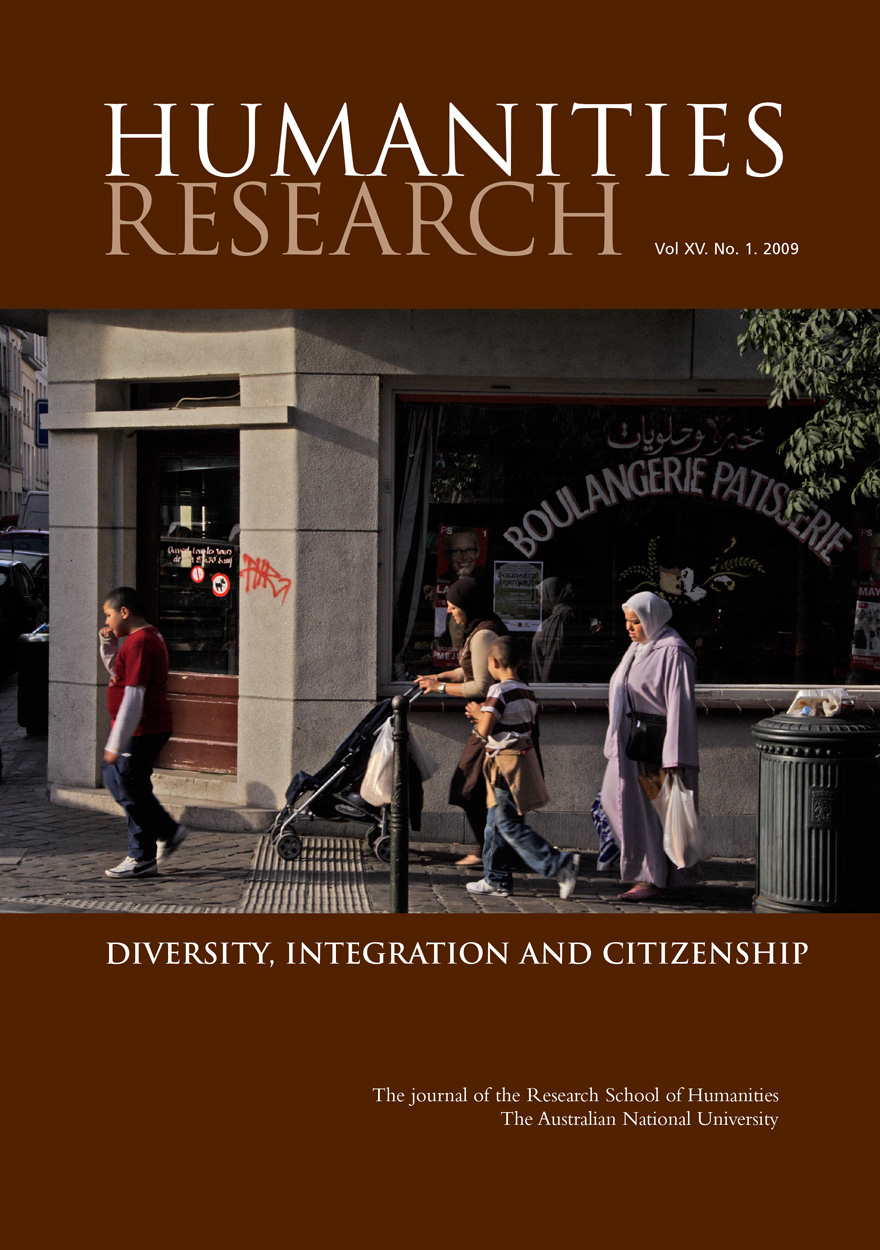
Humanities Research: Volume XV. No. 1. 2009 »
Diversity, Integration and Citizenship
Edited by: Adam Berryman, Kate Mitchell
Publication date: March 2009
Humanities Research is an internationally peer-reviewed journal published by the Research School of Humanities at The Australian National University. The Research School of Humanities came into existence in January 2007 and consists of the Humanities Research Centre, Centre for Cross-Cultural Research, National Europe Centre and Australian National Dictionary Centre. Launched in 1997, issues are thematic with guest editors and address important and timely topics across all branches of the humanities.
Download for free
Not available for purchase
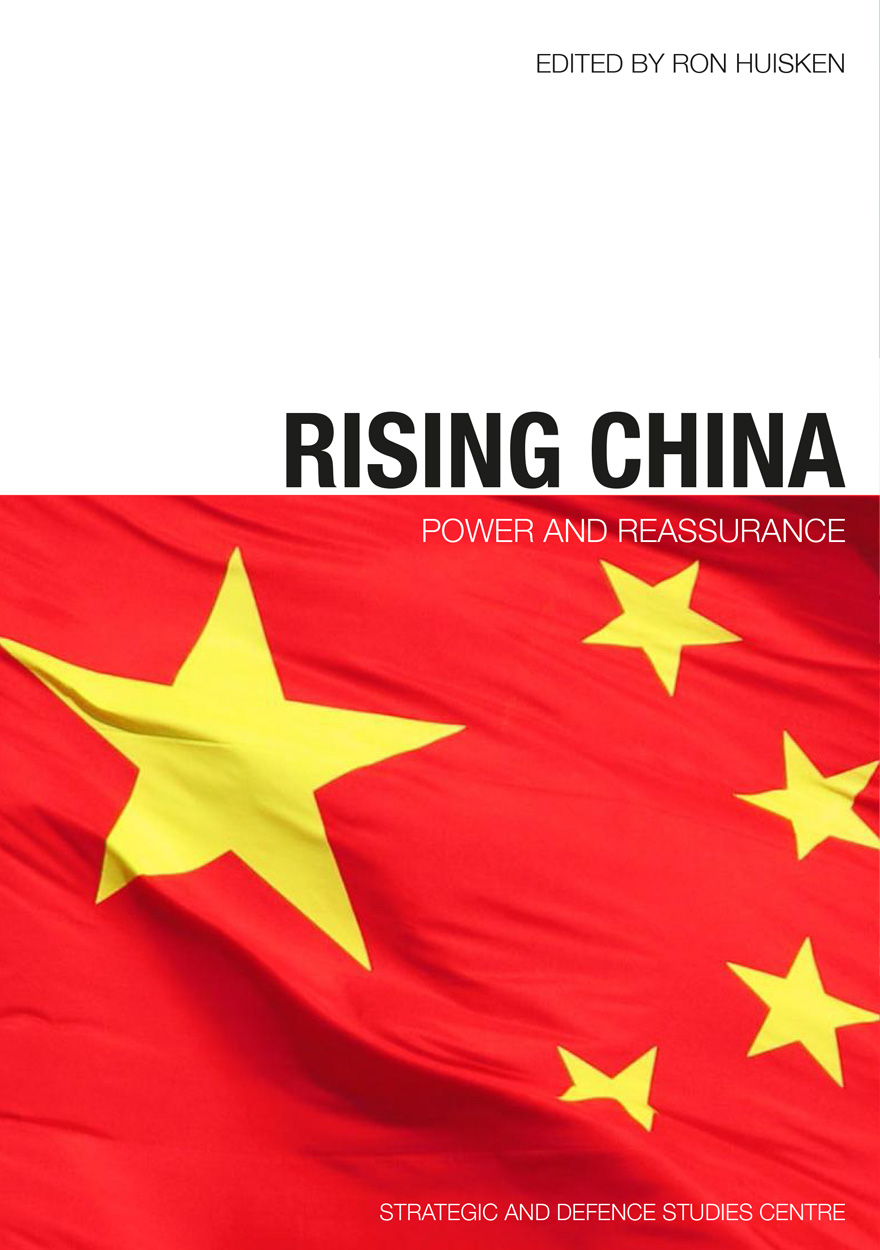
Rising China »
Power and Reassurance
Edited by: Ron Huisken
Publication date: March 2009
Asia looks and feels very different now compared to the days of the Cold War. The sense that Asia now works differently can be traced to a single source – the re-emergence of China. China was the dominant power in greater Asia for most of recorded history. This historical norm was interrupted from the early 19th century, too far into the past to be recognisable and readily accommodated by the actors in today’s international arena. A powerful China feels new and unfamiliar.
Arriving peacefully at mutually acceptable relationships of power and influence that are very different from those that have prevailed for the past half century will be a demanding process. The world’s track record on challenges of this kind is not terrific. It will call for statesmanship of a consistently high order from all the major players, and building the strongest possible confidence among these players that there are no hidden agendas.

New Directions in Archaeological Science »
Edited by: Andrew Fairbairn, Sue O'Connor, Ben Marwick
Publication date: February 2009
Archaeological Science meetings will have a personality of their own depending on the focus of the host archaeological fraternity itself. The 8th Australasian Archaeometry meeting follows this pattern but underlying the regional emphasis is the continuing concern for the processes of change in the landscape that simultaneously effect and illuminate the archaeological record. These are universal themes for any archaeological research with the increasing employment of science-based studies proving to be a key to understanding the place of humans as subjects and agents of change over time.
This collection of refereed papers covers the thematic fields of geoarchaeology, archaeobotany, materials analysis and chronometry, with particular emphasis on the first two. The editors Andrew Fairbairn, Sue O’Connor and Ben Marwick outline the special value of these contributions in the introduction. The international nature of archaeological science will mean that the advances set out in these papers will find a receptive audience among many archaeologists elsewhere. There is no doubt that the story that Australasian archaeology has to tell has been copiously enriched by incorporating a widening net of advanced science-based studies. This has brought attention to the nature of the environment as a human artefact, a fact now more widely appreciated, and archaeology deals with these artefacts, among others, in this way in this publication.
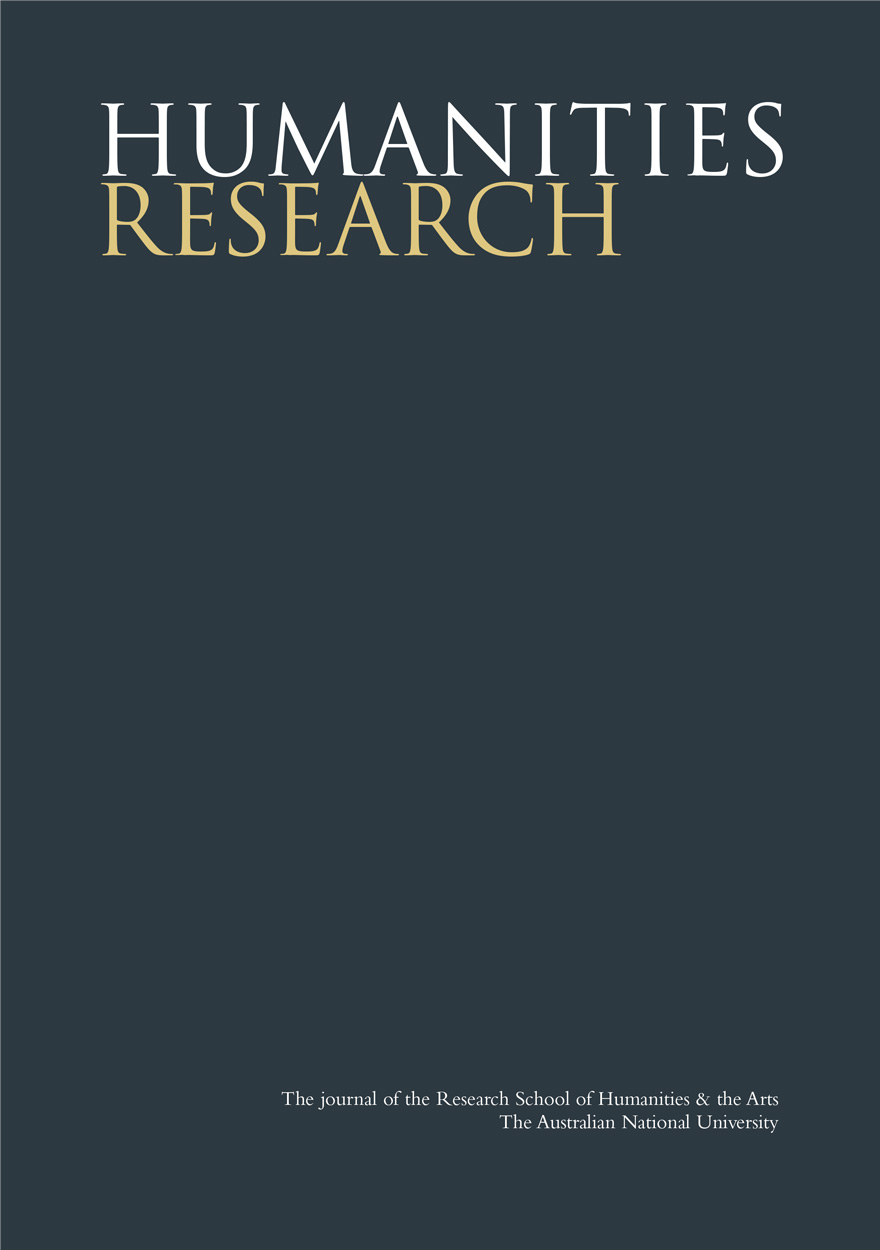
Humanities Research Journal Series: Volume IX. No. 1. 2002 »
Publication date: January 2009
Humanities Research is an internationally peer-reviewed journal published by the Research School of Humanities at The Australian National University. The Research School of Humanities came into existence in January 2007 and consists of the Humanities Research Centre, Centre for Cross-Cultural Research, National Europe Centre and Australian National Dictionary Centre. Launched in 1997, issues are thematic with guest editors and address important and timely topics across all branches of the humanities.
Download for free
Not available for purchase
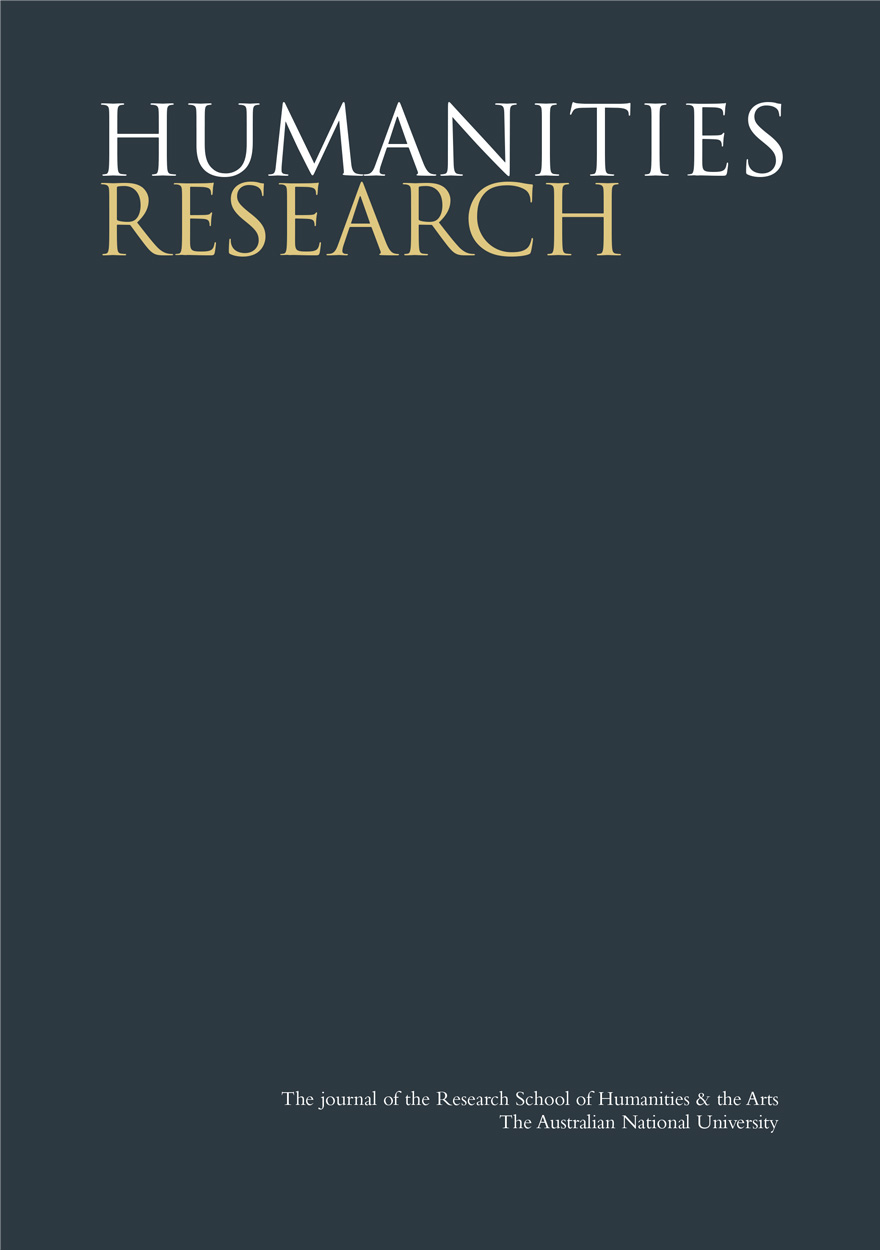
Humanities Research Journal Series: Volume VIII. No. 1. 2001 »
Publication date: January 2009
Humanities Research is an internationally peer-reviewed journal published by the Research School of Humanities at The Australian National University. The Research School of Humanities came into existence in January 2007 and consists of the Humanities Research Centre, Centre for Cross-Cultural Research, National Europe Centre and Australian National Dictionary Centre. Launched in 1997, issues are thematic with guest editors and address important and timely topics across all branches of the humanities.
Download for free
Not available for purchase



